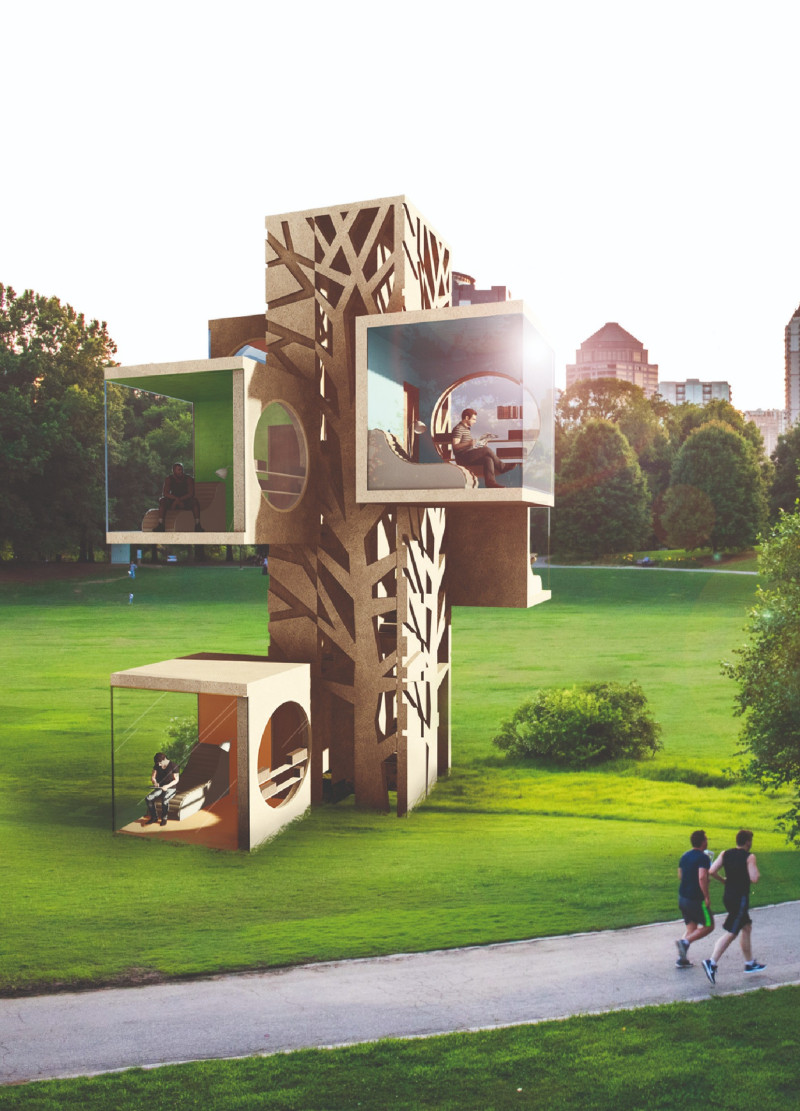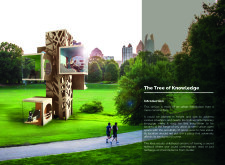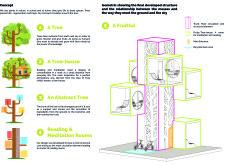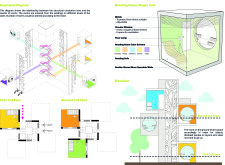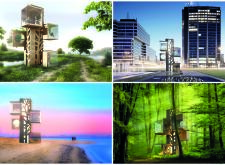5 key facts about this project
The Tree of Knowledge serves as an urban installation that combines architectural design with themes of nature. Located in an urban or semi-urban area, the structure is intended to be a space for contemplation and learning. Its design represents the characteristics of a tree, symbolizing life, growth, and the pursuit of knowledge. The installation invites people to connect with their environment in a meaningful way.
Conceptual Framework
The project centers around the idea of a tree, which serves as a metaphor for nurturing and developing knowledge. The design features a central trunk that acts as a main pathway for circulation. Surrounding this core are reading and meditation rooms, conceptualized as the "fruits" of the tree. This arrangement mirrors the natural process of growth, where knowledge is cultivated and shared.
Spatial Organization
Within the design, multiple reading and meditation areas are arranged around the structural trunk. Each room is designed to provide flexibility, allowing adjustments to the number and function of spaces according to the needs of the community. Key design elements, like adjustable blinds, help control light, creating an environment that is conducive to study and reflection.
Accessibility Features
Accessibility is a crucial aspect of the structure, as shown by the ground-level room designed for ease of movement. This feature accommodates individuals with mobility limitations and aims to promote inclusivity among users. The intention is to allow everyone to engage with the space, regardless of their physical abilities.
Materials and Sustainability
While specific materials are not highlighted, the design incorporates double-glazed glass for the operable walls. This choice not only enhances the natural light in the space but also contributes to energy efficiency. By blending functional features with aesthetic qualities, the installation reflects a thoughtful approach to sustainability.
The careful arrangement of spaces for reflection and study emphasizes connections between people and nature, reminding users of the importance of knowledge and growth in their lives.


